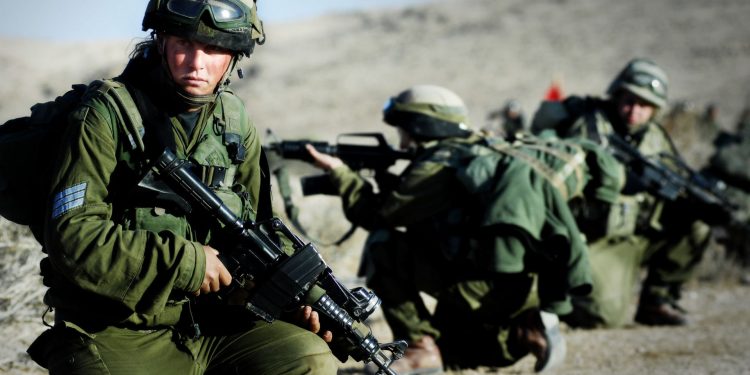Prime Minister Benjamin Netanyahu on Friday gave the green light for soldiers to be deployed in a mostly ultra-Orthodox Jewish city considered the centre of Israel’s novel coronavirus outbreak.
“In light of the special situation in Bnei Brak following the restrictions due to the coronavirus, the IDF (army) will immediately present the necessary civil assistance to Bnei Brak municipality in fulfilling its responsibilities,” Netanyahu’s office said after talks with security and health officials.
Authorities have enforced restrictions on access to Bnei Brak, a majority ultra-Orthodox city near Tel Aviv that is home to around 200,000 people.
More than 7,000 cases of COVID-19, including 40 deaths, have been officially declared in Israel.
According to local media, half of those infected are ultra-Orthodox Jews, a community which represents only around 10 percent of the Israeli population.
Many ultra-Orthodox Jews have refused to comply with confinement measures and social distancing.
This week has seen tense exchanges as police stepped up patrols of ultra-Orthodox neighbourhoods that have become virus hotspots.
Netanyahu himself re-entered precautionary quarantine this week after Health Minister Yaakov Litzman, a leading member of the ultra-Orthodox community, tested positive for COVID-19.
‘Not without risk’
Army spokesman Jonathan Conricus said the military would deploy 800-1,000 soldiers in Bnei Brak to “assist” local authorities “because of the severity of the situation there and because of the relative lack of implementation of health ministry instructions”.
Soldiers will help distribute food and medicine and help with the evacuation of people with virus symptoms, Conricus told an online conference call with reporters.
He said the army would also seek to ensure health messages were reaching the ultra-Orthodox community.
Motti Ravid, director of Mayanei Yeshua hospital in Bnei Brak, told AFP earlier this week that with internet and television prohibited in the ultra-Orthodox community on religious grounds, government directives took a long time to filter through.
Even for those using mobile phones, access to the internet and most message services is blocked, shutting them off from the main form of communication used by the health ministry.
Conricus said soldiers would wear orange and most of them would not carry weapons.
He anticipated misunderstandings and frustrations among the community, but “we are taking that into consideration”.
Commanders “are doing a crash course” on the “social fabrics” of Bnei Brak to minimise friction, the spokesman said.
“It is a very delicate” situation, he said. “It is not without risk.”
75,000 cases in Bnei Brak?
Ran Saar, director of the health care organisation Maccabi, has said almost 40 percent of the population of Bnei Brak could be infected by the novel coronavirus, equivalent to nearly 75,000 cases.
“According to various indicators, about 38 percent of Bnei Brak residents are ill,” Saar said Thursday before a parliamentary committee examining the government response to the pandemic.
Israelis are currently restricted from venturing out more than 100 metres (330 feet) from their homes, except to go to the supermarket, pharmacy or hospital.
Netanyahu has said that the Passover holiday, which begins Wednesday and lasts eight days, could be a “turning point” in the fight against the novel coronavirus if precautions are followed.
Last month, gatherings for the religious festival of Purim were banned, but many ultra-Orthodox defied the restrictions, which authorities say contributed to the spread of the virus.
In Bnei Brak, some residents have not only ignored health regulations but also faced off with the police.
A number of them were reportedly part of a group known as the Jerusalem Faction, which is fiercely opposed to the integration of ultra-Orthodox Jews in the army.











